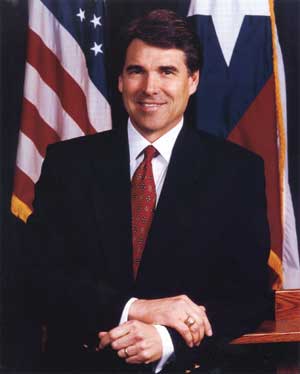RFS waiver request debate continues

July 8, 2008
BY Anna Austin
The 30-day public comment period for the Texas renewable fuels standard (RFS) waiver ended June 23, during which time the U.S. EPA received nearly 15,000 comments.
The EPA requested public comments on the issue after receiving a letter from Texas Gov. Rick Perry's office April 25 that requested a 50 percent waiver. Contradictory to a study recently released by Perry's alma mater Texas A&M University, Perry stated, "This request is based upon data demonstrating that implementation of the mandate is unnecessarily having a negative impact on Texas' otherwise strong economy, while driving up global food prices."
In the letter, Perry also said the Texas livestock industry is facing great harm due to rocketing corn prices because of the RFS.
In response to an inquiry from U.S. Committee on Energy & Natural Resources Chairman Jeff Bingaman, which posed multiple questions regarding the issues in debate, Secretary of Energy Samuel Bodman and Secretary of Agriculture Ed Shafer provided their take on the situation in a letter sent June 11. "It is clear that biofuels are already moderating gasoline prices," they said. "Our preliminary analysis further suggests that current biofuels-related feedstock demand plays only a small role in global and food-supply pricing."
In response to the EPA's comment request, the National Corn Growers Association submitted a letter June 17, strongly urging a denial of the waiver. "The strong renewable fuel policies in the United States have not only created local, rural and economic growth, but have increasingly prompted development and prosperity among third-world farmers," the letter stated. The NCGA also said Perry's claims failed to consider the many benefits that ethanol and other renewable fuels bring to Texas and the nation."
On the other side of the argument, the National Chicken Council filed comments with the EPA on June 13 in support of a national waiver, saying the use of ethanol as a supplement to gasoline may have been well-intended as a response to U.S. energy needs but has had negative, unintended consequences. "The program has imposed, and continues to
impose, heavy costs and severe harm on chicken producer/processors and their customers," the council wrote.
At press time, the EPA had until July 23 to make a ruling.
The EPA requested public comments on the issue after receiving a letter from Texas Gov. Rick Perry's office April 25 that requested a 50 percent waiver. Contradictory to a study recently released by Perry's alma mater Texas A&M University, Perry stated, "This request is based upon data demonstrating that implementation of the mandate is unnecessarily having a negative impact on Texas' otherwise strong economy, while driving up global food prices."
In the letter, Perry also said the Texas livestock industry is facing great harm due to rocketing corn prices because of the RFS.
In response to an inquiry from U.S. Committee on Energy & Natural Resources Chairman Jeff Bingaman, which posed multiple questions regarding the issues in debate, Secretary of Energy Samuel Bodman and Secretary of Agriculture Ed Shafer provided their take on the situation in a letter sent June 11. "It is clear that biofuels are already moderating gasoline prices," they said. "Our preliminary analysis further suggests that current biofuels-related feedstock demand plays only a small role in global and food-supply pricing."
In response to the EPA's comment request, the National Corn Growers Association submitted a letter June 17, strongly urging a denial of the waiver. "The strong renewable fuel policies in the United States have not only created local, rural and economic growth, but have increasingly prompted development and prosperity among third-world farmers," the letter stated. The NCGA also said Perry's claims failed to consider the many benefits that ethanol and other renewable fuels bring to Texas and the nation."
On the other side of the argument, the National Chicken Council filed comments with the EPA on June 13 in support of a national waiver, saying the use of ethanol as a supplement to gasoline may have been well-intended as a response to U.S. energy needs but has had negative, unintended consequences. "The program has imposed, and continues to
impose, heavy costs and severe harm on chicken producer/processors and their customers," the council wrote.
At press time, the EPA had until July 23 to make a ruling.
Advertisement
Advertisement
Advertisement
Advertisement
Upcoming Events





